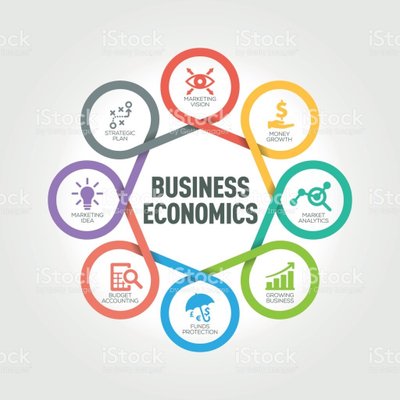Business and Economics Strategies for Sustainable Growth in a Changing World
Business and Economics Strategies for Sustainable Growth in a Changing World
Blog Article
Company and Economics 101: Necessary Understanding for Aiming Leaders
In today's rapidly developing service landscape, aiming leaders must grow an extensive understanding of essential calculated frameworks and financial principles. Understanding ideas such as supply and demand, market structures, and competitors is not merely academic; these components are important in shaping efficient decision-making and cultivating technology.
Recognizing Supply and Demand
Supply and need are fundamental concepts that regularly underpin the mechanics of any type of market economy. The relationship in between these two forces establishes the cost of goods and solutions as well as their accessibility in the market. Supply refers to the quantity of an item that manufacturers are able and ready to cost numerous price levels, while demand shows the amount that customers are eager and able to purchase.
When demand enhances without a matching surge in supply, prices tend to increase, signifying manufacturers to enhance outcome. On the other hand, if supply overtakes need, prices may fall, triggering manufacturers to lower output. This vibrant interaction helps to accomplish market balance, where the amount provided matches the quantity required at a certain rate point.

Exploring Market Structures
Market frameworks define the affordable setting in which organizations operate, significantly affecting their rates methods, result levels, and general profitability. Comprehending these frameworks is important for aiming leaders, as they shape service choices and market dynamics.
There are 4 key kinds of market frameworks: best competitors, monopolistic competitors, oligopoly, and monopoly. Monopolies exist when a single company regulates the market, resulting in the highest possible degree of rates power and prospective market ineffectiveness.
Each market structure provides distinct difficulties and chances for services. Leaders must understand these nuances to properly position their organizations, establish affordable approaches, and reply to market changes. By comprehending the ramifications of different market structures, striving leaders can make enlightened decisions that drive their businesses towards lasting success and growth in an ever-evolving financial landscape.
Financial Concepts for Leaders
Efficient leadership in company requires a solid understanding of monetary principles, as they underpin strategic decision-making and source allocation. Leaders need to understand key ideas such as capital management, productivity evaluation, and financial forecasting. These aspects are crucial in assessing a company's financial wellness and directing its future instructions.
Money circulation administration is specifically crucial; it ensures that the company maintains adequate liquidity to fulfill its commitments while going after development chances. Assessing success permits leaders to identify which services or products yield have a peek at these guys the greatest returns, making it possible for informed financial investment choices. Furthermore, financial projecting aids expect future revenues and costs, facilitating more accurate budgeting and resource allowance.
Furthermore, understanding monetary declarations-- such as annual report, income declarations, and capital statements-- gears up leaders with the understandings essential to make enlightened options. This knowledge promotes responsibility and openness, enhancing stakeholder count on.
In today's dynamic organization atmosphere, leaders need to be experienced at analyzing financial data to respond quickly to market changes. Eventually, a strong grasp of monetary principles empowers leaders to drive their companies towards lasting success while effectively managing resources and threats.
The Duty of Competitors
Recognizing the role of competition is crucial for any type of organization intending to flourish in a saturated market. Competitors drives advancement and effectiveness, compelling services to improve their solutions and products continuously.
Furthermore, competitors can result in better prices strategies. As companies try market share, they are incentivized to supply competitive rates, profiting consumers while difficult companies to handle expenses effectively. This vibrant fosters a society of continuous renovation, pushing companies to improve operations and boost worth suggestions.
Additionally, competitors can promote market development by motivating brand-new participants. New businesses typically present fresh concepts and strategies, even more boosting the total market landscape. However, business have to also be vigilant; excessive competitors can lead to market saturation, decreasing profitability for all players included.
Inevitably, understanding and navigating competition is vital for leaders. By identifying its multifaceted role, striving leaders can make educated choices that place their companies for lasting success in an ever-evolving industry.
Strategic Decision-Making
In the realm of service, calculated decision-making is essential to accomplishing lasting objectives and adapting to transforming conditions. This procedure includes assessing different alternatives and picking one of the most efficient program of action that aligns with the organization's vision and objectives. Reliable calculated decision-making needs a complete understanding of both outside and inner settings, consisting of market fads, affordable characteristics, and website link business abilities.
Leaders should gather relevant info, assess it critically, and forecast potential results. Furthermore, analyzing risks associated with each alternate makes it learn the facts here now possible for leaders to expect obstacles and develop contingency strategies.
Eventually, effective calculated decision-making encourages organizations to navigate complexities, take advantage of chances, and react proactively to dangers. By cultivating a society that values educated decision-making, companies place themselves to innovate and maintain a competitive edge in an ever-evolving company landscape. Ambitious leaders should refine these abilities, as their ability to make sound critical decisions will significantly influence their organizations' success and sustainability.

Final Thought
Recognizing the role of competitors further enhances critical thinking, enabling leaders to browse complex market dynamics. Ultimately, this foundational expertise equips future leaders to introduce and straighten business approaches with developing market problems, leading the means for sustained success and profitability.
Recognizing these ideas is important for striving organization leaders, as they form the foundation for efficient decision-making in rates, source allowance, and market strategy. Understanding supply and need equips leaders to browse the intricacies of market changes and customer behavior.
Syndicates exist when a solitary company manages the market, resulting in the greatest degree of pricing power and prospective market inefficiencies.
By comprehending the ramifications of various market frameworks, aspiring leaders can make educated choices that drive their companies towards sustainable success and growth in an ever-evolving financial landscape.
Understanding the duty of competition additional boosts calculated reasoning, enabling leaders to navigate intricate market dynamics.
Report this page